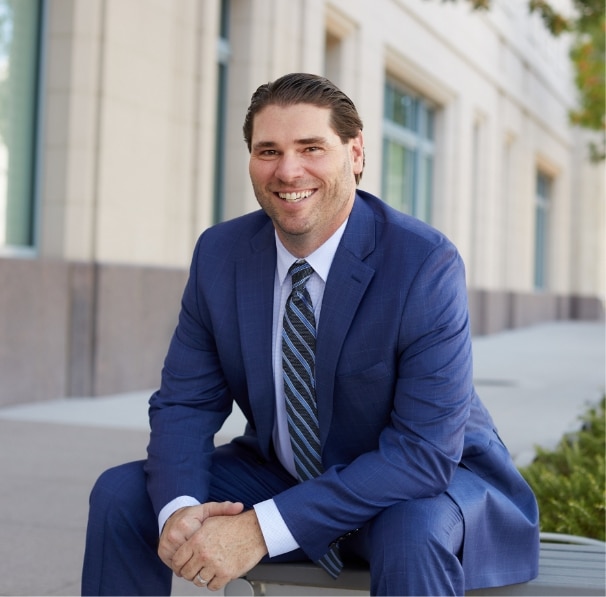You generally have two years to sue for damages if you suffered injuries on another person’s property in Nevada. If you only suffered property damage in the premises liability incident, you have three years to file a premises liability lawsuit. In both cases, the filing deadline begins to count on the date of the incident. You must prove that the defendant was liable to win a premises liability case. Your contribution to the liability must also not go above 50%. An attorney can help you understand the statute of limitations on premises liability cases and how it applies to your situation.
Table of Contents
ToggleHow Long Do I Have to Sue for Premises Liability?
If you sustained serious injuries or property damage in an accident on someone else’s property in Las Vegas, you might ask, “what is the statute of limitations on premises liability?” You have two years to sue for premises liability in Nevada if you got injured in a premises liability accident on someone else’s property.
The filing deadline extends to three years for damage to property arising from the accident. Perhaps you did not sustain any injuries, but you damaged your expensive laptop, cell phone, watch, or jewelry. The statute of limitations for both cases begins on the date when the accident happened.
If your loved one gets killed in a premises liability accident, you can pursue damages by initiating a wrongful death action. You typically have two years after the death, not after the accident, to sue for wrongful death damages.
If you bring a lawsuit after the statute of limitations on premises liability has passed, the defendant will file a motion for dismissal of your case. The judge will most likely grant the dismissal unless exceptions or aggravating factors apply in your case. Once your case gets dismissed, you lose the ability to seek damages, with very few exceptions.
Involve a Las Vegas premises liability lawyer immediately after the premises liability incident to ensure you sue for damages within the statute of limitations. The lawyer can go through the information and evidence in your case to determine the kind of duty the defendant owed you. The lawyer can review medical records, the extent of your injuries, and the value of your damaged property to determine how much your premises liability case is worth.
Do I Have a Premises Liability Claim?
Negligence is the main legal theory in a premises liability claim. Under premises liability laws, the owner, lessee, or occupant of a property has a legal obligation to keep it in a reasonably safe condition. Violation of that legal obligation amounts to negligence.
The following elements must exist for you to have a premises liability claim:
- The person liable for your injury owned, controlled, or lived on the property where the accident happened;
- You had that person’s consent to be on the property;
- A hazardous condition existed on the property;
- The other person caused was aware of, or should have been aware of the alleged hazardous condition; and
- You suffered an injury or other damages due to the hazardous condition.
You must show by a “preponderance of the evidence” that the other person acted negligently to recover damages. In other words, you must provide reasonable evidence to prove your injuries or damages directly stemmed from the other party’s violation of a legal duty of care. You need to show that the other person more likely than not caused your injuries or property damage.
You need to know what to do after a slip and fall to build enough grounds for a premises liability case. For instance, you can take pictures of the hazardous condition and your injury. You should report the incident to the property owner or manager and seek immediate medical help to document and address your injuries. Writing down contact information and statements of eyewitnesses is also a wise decision.
Who Can I Sue in a Premises Liability Claim?
You can file a premises liability claim against any party that contributed to the dangerous condition that caused your injuries. It could be the premises owner or the party leasing or renting the premises. It could also be a party lawfully residing on the property.
Ensure you determine all potentially liable parties when deciding whom to sue in a premises liability claim. More potentially at-fault parties translate to more insurance companies to pursue and more compensation to cover your damages fully. The following are the most common liable parties in premises liability actions:
Property owner
You can sue an owner of a residential, commercial, or business property if you slip and fall due to slippery floors or other hazardous conditions and sustain serious injuries or property damage. The private property owner may be who is liable when you are bitten by a dog while lawfully on the private property.
Renter
You may be wondering if you can sue a landlord for negligence in Las Vegas. You might need to review the lease agreement to determine who owes the premises liability duty when tenants have rented the land if you got injured in a rented facility or property. The lease agreement typically outlines the responsibility of both the renter and the property owner. A renter of a retail store, for instance, may be responsible for wiping out spills inside the store. The property owner may be responsible for cleaning the parking lot, business grounds, and a common space shared with other stores.
Business Owner
Businesses like eateries and stores in a mall generally have a duty to ensure the safety of the property where they do their business. You can sue an owner of such a business if you get injured while legally on the property.
Government Entity
You can also pursue damages from a government entity in Nevada if you sustain injuries due to hazardous conditions on a government-owned and maintained property. Your claim process will, however, be different from that of suing a property owner or business.
The Impact of Comparative Negligence in Premises Liability Claims
The comparative negligence rule applies in injury cases where the plaintiff is partially liable for the underlying accident. Nevada’s comparative negligence rule allows you to receive compensation for your injuries even if you were partially to blame for the accident. Any damages you may recover are, however, reduced as per your percentage of liability. If your share of the fault is more than 50%, you cannot recover any compensation.
Example
Let’s assume the jury determines that you are 35% liable for your premises liability accident. It also establishes that all your damages amount to $10,000. In this scenario, $3500 (representing your share of liability) will be deducted from the original $10,000. You will end up receiving $6,500 as compensation for your injuries.
It’s important to note that the responsibility of raising and proving comparative negligence lies with the defendant. A lawyer conversant with your state’s comparative negligence rule can review your case and tell you whether this rule will apply. The lawyer can also gather as much evidence as possible to build a strong case and maximize your compensation.




